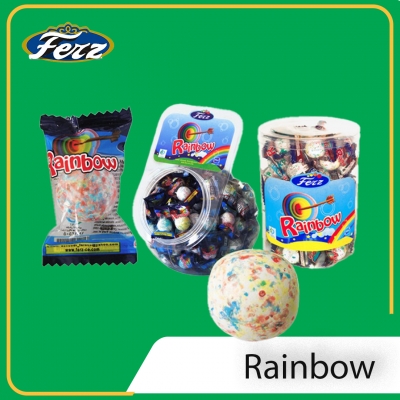Some people may want to avoid aspartame for health reasons or personal preferences. Fortunately, there are many natural chewing gums that are chemical-free and sweetened with xylitol, a natural sugar alcohol derived from plants1 :
Some of the most popular brands of chewing gum without aspartame are
Simply Gum: This gum is made with organic ingredients like raw sugar, tree sap, and rice flour. It comes in a variety of flavors, such as peppermint, cinnamon, ginger, and fennel1.
Pur Gum: This gum is vegan, gluten-free, and non-GMO. It is sweetened with xylitol and comes in several flavors, such as spearmint, bubblegum, chocolate mint, and pomegranate mint1.
Glee Gum: This gum is made with natural chicle, a sap from the sapodilla tree. It is also sweetened with xylitol and comes in flavors like watermelon, lemon-lime, and peppermint1.
Quip Gum: This gum is designed to promote dental health and prevent cavities. It is also sugar-free, vegan, and biodegradable. It comes in a sleek refillable dispenser and has a minty flavor2.
Mighty Gum: This gum is infused with natural extracts that boost immunity, such as ashwagandha, elderberry, and reishi mushroom. It is also sugar-free, vegan, and gluten-free. It has a berry flavor2.
How does xylitol compare to sugar and other sweeteners ?
Xylitol is a natural sugar alcohol that is found in some fruits and vegetables. It has a similar sweetness as regular sugar, but contains 40% fewer calories and has a lower glycemic index. This means that it does not raise blood sugar levels as much as sugar or other sweeteners, making it a good choice for people with diabetes or those who want to control their weight³⁴.
However, xylitol also has some drawbacks. It can cause digestive problems, such as bloating, gas, and diarrhea, especially if consumed in large amounts. It can also be toxic to dogs, so it should be kept away from pets¹. Additionally, xylitol does not caramelize or dissolve as well as sugar, so it may not work well in some recipes that require these properties².
Some other sugar substitutes that are commonly used are erythritol, stevia, monk fruit, and artificial sweeteners like aspartame, sucralose, and saccharin. Each of these has its own advantages and disadvantages, depending on your preferences, health goals, and dietary restrictions.
Can I use xylitol if I have diabetes ?
Xylitol is a natural sugar alcohol that is commonly used as a sugar substitute in sugar-free gums and candies. It has a similar sweetness as regular sugar but contains 40% fewer calories and has a lower glycemic index (GI) of 7 compared with sugar’s GI of 8412. This means that it does not raise blood sugar levels as much as sugar or other sweeteners, making it a good choice for people with diabetes or those who want to control their weight3 .
However, xylitol also has some drawbacks. It can cause digestive problems, such as bloating, gas, and diarrhea, especially if consumed in large amounts12. It can also be toxic to dogs, so it should be kept away from pets1. Additionally, xylitol does not caramelize or dissolve as well as sugar, so it may not work well in some recipes that require these properties2
Some other sugar substitutes that are commonly used are erythritol, stevia, monk fruit, and artificial sweeteners like aspartame, sucralose, and saccharin. Each of these has its own advantages and disadvantages, depending on your preferences, health goals, and dietary restrictions.





